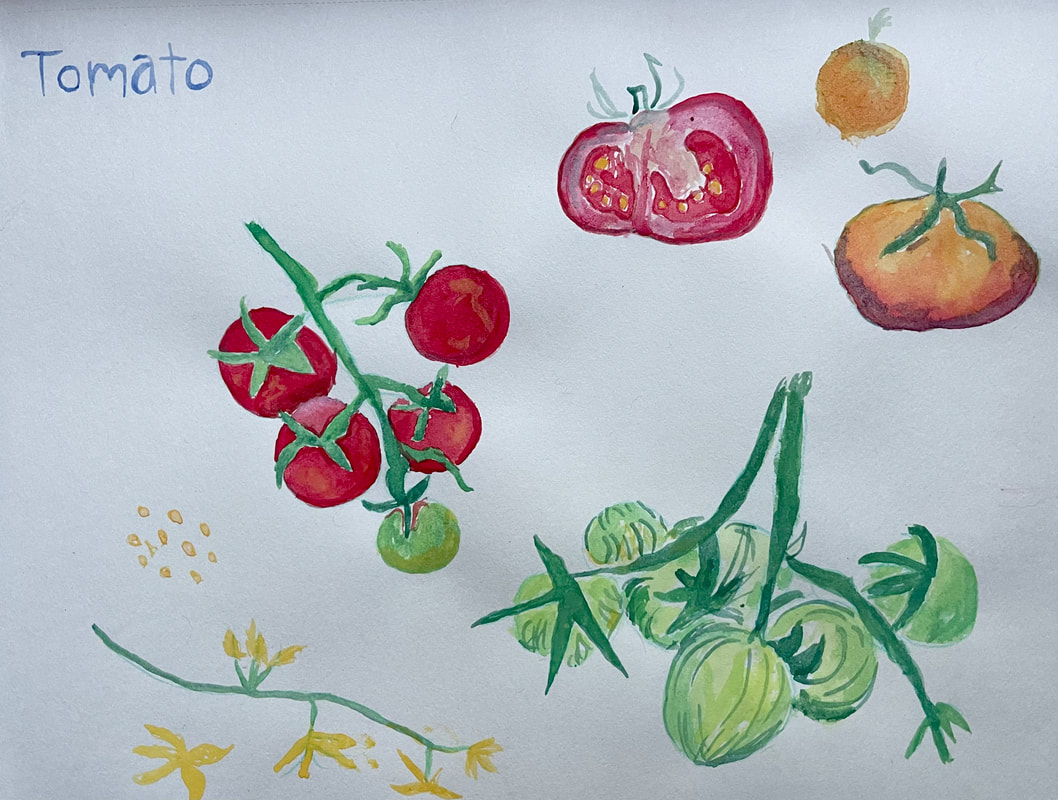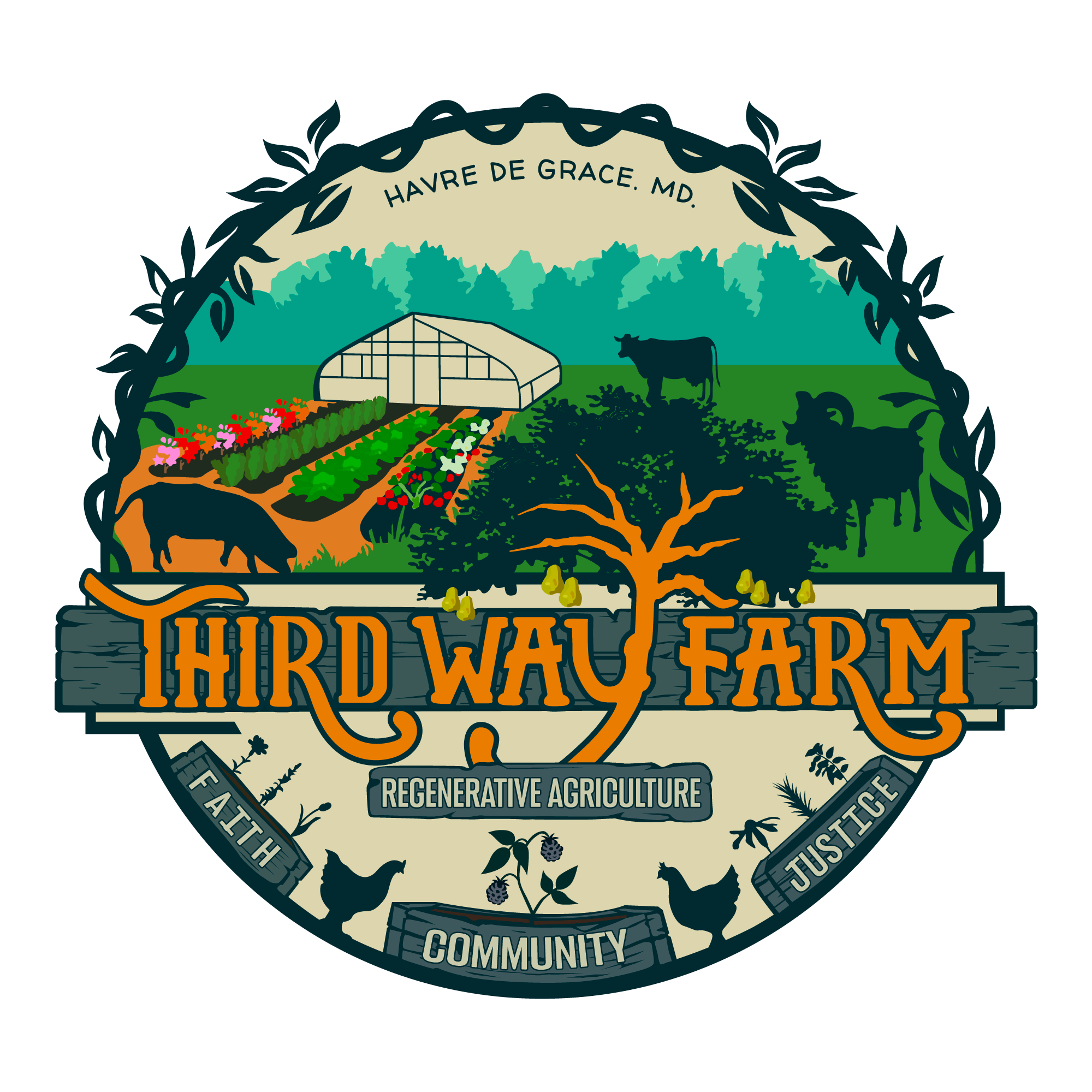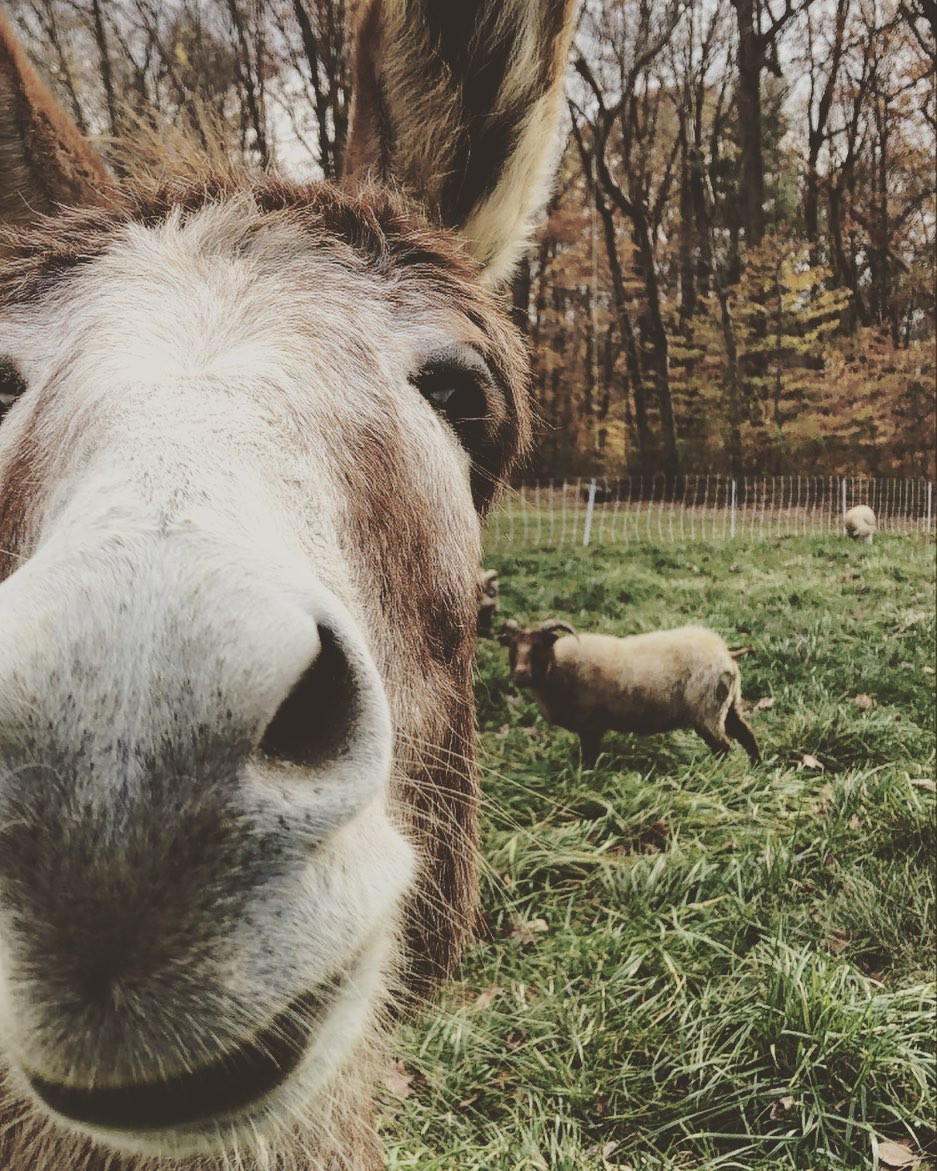Tomato Time
posted on
June 29, 2023
The beginning of July. Out with the sweet red of strawberries and in with the red fruit of tomatoes. Red, and orange, yellow, and purple, first green, sometimes pink, solid, striped, and tie dyed. Most of the year we are asked, “Do you have tomatoes yet?” Short answer, yes. When tomatoes are not in our hands and bellies, they live in our hearts and minds. The tomato plant (scientifically called Solanum lycopersicum) is a solanaceous crop, in the family of many familiar foods like eggplant, potatoes, and peppers. All solanaceous crops are flowering, simply put - flowers give way to fruit via pollination. Tomatoes are native to South America and were later cultivated in Europe. So by some geographic technicality, a tomato could be considered a tropical fruit! The Mexican word tomatl turned to the Spanish tomate and then the English tomato. The Italian word for tomato is pomodoro (that pasta pomodoro you love means tomato pasta). Pomodoro translates to “golden apple,” meaning some of the first varieties of tomato grown in Italy were likely yellow. The original wild plants were more ornamental and the fruits were much smaller. After years and years of planting, growing, harvests, and seed saving experiments, the varieties we know and love today came to be. Start to finish, tomatoes are around the farm in some way. Seeds are snuggled up in their bags during the winter, sown in late winter, planted early spring, grown, pruned, and harvested through summer, then finally cut out in the fall. In the early days of March we get busy with sowing. Beefsteak, Cherokee, Sungold, and many, many more (there is even a variety called Kellogg's Breakfast)! It is hard to believe that seeds no bigger than the top of a pin grow to tower over us. After the seeds get cozy for a while with their soil trays warmed by heat mats, they are moved out to our greenhouse to spend time soaking up the sunshine. Once the plants are mature, they are planted into various plots on the farm. There is an entire white high tunnel filled with hundreds of tomato plants. Like most plants, people, and animals, tomatoes appreciate good friends. Nasturtium and marigold flowers are companions to tomatoes, they attract beneficial insects that drive away pests and bees that pollinate. Countless hours are spent trellising and pruning, this supports the plants and ensures they produce fruit all season long. And finally, after months and months of lots of the utmost love and care comes the fruit! Flowers turn to fruit, green gives way to all the beautiful colors and flavors of tomatoes. The harvest is what we look forward to all year long, it is worth the wait and such a joy to share with the community. My personal favorite way to eat tomatoes is straight up, cherry tomatoes are like candy. An heirloom tomato the size of my head, sliced with salt and pepper. I learned this next one last summer, it’s one of those no measurements just do what feels right recipes: Heat a generous amount of olive oil or butter in the pan. Sauté onion, garlic, cherry or diced tomatoes until cooked down into a sauce. Salt and pepper and add herbs to taste. Chop your favorite Third Way Farm sausage, add to the pan and cook to perfection. I personally love the hot Italian, I like to add smoked paprika for an extra kick, too. Serve over pasta, rice, potatoes, or on its own! Paintings! I'm painting tomatoes this weekend. |



